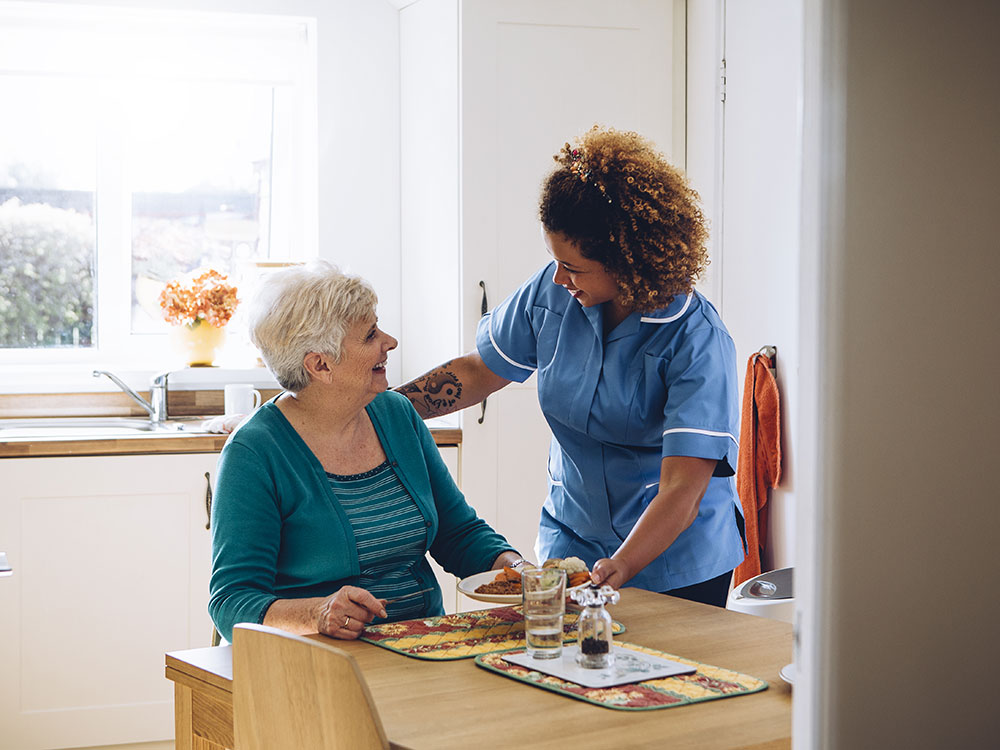Fewer seniors in British Columbia are receiving home-based support than they were five years ago, according to a new report from the Office of the Seniors’ Advocate. And the hours they are receiving are fewer as well.
About 30 per cent of B.C.’s 25,000 home support clients receive daily support and the vast majority who do receive less than an hour, found the report, titled “We Must Do Better.”
And high costs and limited availability of essential support are pushing seniors into long-term care prematurely as the population grows older and more medically frail.
“Home support may be working well for some, but it is perhaps leaving many behind… and it is failing to keep many people out of long-term care for as long as possible,” seniors’ advocate Isobel Mackenzie told media Thursday afternoon.
More than 25,000 seniors in B.C. receive publicly funded home support services by a trained community health worker who is supervised by a registered nurse, which can include help bathing, eating, using the toilet, changing catheters and personal grooming.
On average, home care clients are 84 years old and about one third have dementia, according to the report, which surveyed more than 6,000 clients and their caregivers between April and June 2021.
“What I hear most [from seniors] is their desire to live at home, in their community, with the people they love,” said Mackenzie.
Thursday’s report shows those receiving adequate home support helps people stay in their homes and avoid caregiver burnout, Mackenzie said. But many more are not having their needs met by the services or are not able to afford them at all.
Since 2018, total home support care hours have increased by just five per cent as the number of people receiving care increased by six per cent. Factoring in population growth, that means about nine per cent fewer seniors in B.C. in general are getting help at home.
In that time the budget for home support from health authorities rose by 42 per cent, most of which went to hiring and retaining a growing number of community health workers, Mackenzie said.
“Overall the program is providing less care to an overall fewer proportion of clients who are on average more frail and complex,” she said.
Much of the missing care is coming from family caregivers, who report high levels of burnout. Families currently provide five hours of support for every one hour of professional care their loved one receives, the report found. And about 34 per cent of caregivers are in distress in B.C., the third highest rate of any province in Canada.
The pressures cascade into long-term and acute care. More than half of people receiving home care are at high or very high risk of being admitted to a long-term care facility, the report found, and 61 per cent of people admitted to long-term care hadn’t received any home care support in the 90 days before they were admitted.
B.C. has about one third more long-term care residents with needs that could be managed with sufficient support at home than the national average, according to data from the Canadian Institute for Health information.
That rate is more than twice that of provinces like Alberta and Ontario which have eliminated fees for home support clients, Mackenzie pointed out.
And the data shows those who get care at home are those who can afford it.
About 29 per cent of all seniors in B.C. receive the federal guaranteed income supplement which exempts them from fees for home care, Mackenzie said, but 65 per cent of home support clients receive the supplement. About one third of all home support clients experience financial hardship.
Right now in B.C., a single senior woman with a $29,000 annual pension income would not be eligible for GIS and would need to pay $9,000 of that in a year for one hour of care every day, Mackenzie said, leaving her with not enough to cover housing, food and other essentials.
That same care would cost the government $14,000 to provide, compared to the $60,000 more it would pay for her to live in long-term care if she could not manage at home alone.
“We need to think about this pennywise, pound foolish approach for charging for our home services,” Mackenzie said. “We cannot disregard overwhelming evidence that links home support utilization to whether or not a person has to pay for it, and the lack of care then linking to premature long-term care admissions.”
Mackenzie called on the government to make sweeping changes, including eliminating the financial barriers to home support by removing the fee or capping it to a low proportion of income.
Care plans should be modernized to include laundry, cooking, cleaning and companionship help seniors say they need, and standardized care hour targets should be set depending on a client’s acuity, like in long-term care. Respite care for family members also needs to be expanded, she said.
About half of community health workers are casual, but creating more full-time, salaried positions would help them provide sustained care at the times of day clients need them most.
And the province should measure and publicly report outcomes related to home support improvement and their impacts on seniors and caregivers, Mackenzie said.
“With a growing seniors population, if we do not make changes to how we are doing things today, we are going to see increased pressure on our health-care system,” she said. ![]()
Read more: Health, Rights + Justice, BC Politics
















Tyee Commenting Guidelines
Comments that violate guidelines risk being deleted, and violations may result in a temporary or permanent user ban. Maintain the spirit of good conversation to stay in the discussion.
*Please note The Tyee is not a forum for spreading misinformation about COVID-19, denying its existence or minimizing its risk to public health.
Do:
Do not: